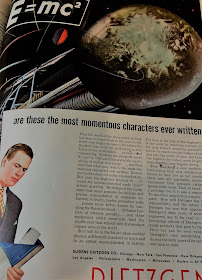R_C_.,
Shaughnessy,
Vancouver,
Canada.
Dear Father:
You wanted to know at first word about Reggie's summer assignment. He will be attached to VP-M-1 at Barbers Point NAS in Hawaii, where he will be trying to wedge more radio receivers into Lockheed Neptunes than any airplane should have to carry. For "weather reconnaissance." "Weather reconnaissance" is in a bit of an ebb at the moment, but will probably come back in full force when the Russian famine is over and the 1948 election is a bit closer at hand. Who knows? Perhaps he will gather some "weather reconnaissance" that is useful to Mrs. C and her friends in Virginia.
"Miss V.C.'s" plans are in flux, but I expect that she will go east to be near "Mr. A." Perhaps she will try to pick up some hints in advance of her seniors' thesis research next year; she remains convinced that a sinister secret concerning the Oregon Scandal is hiding somewhere in the Junior College's archives.
Uncle George has telegraphed that his flight has arrived safely in Scotland. However, it looks like he will be detained by weather and will not be able to get to London in time for the World Shipping Conference, which is a pity. On the other hand, his friend's business partner is also detained, as he missed his berth on the Queen Mary. So it looks like not much advance business will be done before you arrive in England on the matter of, shall we say, securing industrially-necessary supplies of silver nitrate for any film or photography business we might involve ourselves in, over in England.
In the absence of Uncle George, James has stepped in to arrange to put the good old Swallow on the Atlantic run. It will make its first berth in Liverpool on 7 April, if all goes according to plan, and James estimates that it has room for six tons of metal in Great-Uncle's old statesroom. Just to give you an idea of what you have to work with.
In the mean time, I would be most grateful for any distractions you can find, as Dr. Rivers has put me on bed rest until the blessed event. I'm not completely isolated, as I have James and Fanny. Miss J has branched out in her work to assist Fanny, and has been very kind in bringing the twins to see me along with Vickie. I could wish that I saw the same spirit of care and solicitude from Miss M., but she is a fine physical therapist, and not devoid of human kindness. She has even taken to bringing me cookies in bed. Cookies that she baked herself --and I can say no more. At least they are not boring!
"GRACE."



